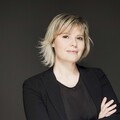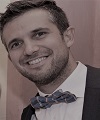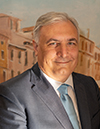Studying at the University of Verona
Here you can find information on the organisational aspects of the Programme, lecture timetables, learning activities and useful contact details for your time at the University, from enrolment to graduation.
Academic calendar
The academic calendar shows the deadlines and scheduled events that are relevant to students, teaching and technical-administrative staff of the University. Public holidays and University closures are also indicated. The academic year normally begins on 1 October each year and ends on 30 September of the following year.
Course calendar
The Academic Calendar sets out the degree programme lecture and exam timetables, as well as the relevant university closure dates..
| Period | From | To |
|---|---|---|
| Periodo generico | Oct 1, 2022 | May 31, 2023 |
| Primo semestre (lauree magistrali) | Oct 3, 2022 | Dec 23, 2022 |
| Secondo semestre (lauree magistrali) | Feb 20, 2023 | May 19, 2023 |
| Session | From | To |
|---|---|---|
| Sessione invernale (lauree magistrali) | Jan 9, 2023 | Feb 17, 2023 |
| Sessione estiva (lauree magistrali) | May 22, 2023 | Jul 7, 2023 |
| Sessione autunnale (lauree magistrali) | Aug 28, 2023 | Sep 22, 2023 |
| Session | From | To |
|---|---|---|
| Sessione autunnale | Dec 5, 2022 | Dec 7, 2022 |
| Sessione straordinaria riservata MS e MCI | Feb 24, 2023 | Feb 24, 2023 |
| Sessione invernale | Apr 4, 2023 | Apr 6, 2023 |
| Sessione estiva | Sep 5, 2023 | Sep 7, 2023 |
Exam calendar
Exam dates and rounds are managed by the relevant Economics Teaching and Student Services Unit.
To view all the exam sessions available, please use the Exam dashboard on ESSE3.
If you forgot your login details or have problems logging in, please contact the relevant IT HelpDesk, or check the login details recovery web page.
Should you have any doubts or questions, please check the Enrollment FAQs
Academic staff
 francesca.bazzani@univr.it
francesca.bazzani@univr.it
 daniela.cavallo@univr.it
daniela.cavallo@univr.it
 massimo.melchiori@univr.it
massimo.melchiori@univr.it
 paolo.pasquetto@univr.it
paolo.pasquetto@univr.it

Santi Flavio
 flavio.santi@univr.it
flavio.santi@univr.it
 045 802 8239
045 802 8239
Study Plan
The Study Plan includes all modules, teaching and learning activities that each student will need to undertake during their time at the University.
Please select your Study Plan based on your enrollment year.
1° Year
| Modules | Credits | TAF | SSD |
|---|
2° Year activated in the A.Y. 2023/2024
| Modules | Credits | TAF | SSD |
|---|
| Modules | Credits | TAF | SSD |
|---|
| Modules | Credits | TAF | SSD |
|---|
| Modules | Credits | TAF | SSD |
|---|
Legend | Type of training activity (TTA)
TAF (Type of Educational Activity) All courses and activities are classified into different types of educational activities, indicated by a letter.
Marketing communications (2022/2023)
Teaching code
4S003250
Academic staff
Coordinator
Credits
9
Language
Italian
Scientific Disciplinary Sector (SSD)
SECS-P/08 - MANAGEMENT
Period
Secondo semestre (lauree magistrali) dal Feb 20, 2023 al May 19, 2023.
Location
VERONA
Learning objectives
This Marketing Communications course is focused on theoretical and technical fundamentals of communications for business, aligned with a marketing approach. In particular, students will understand how to analyze markets and competitors in order to create a marketing strategy, and then define the right communication mix and its metrics for the control. New marketing and communication trends will be discussed through case studies. During this course, students will be asked to apply with creativity these tendencies and techniques, in order to create a professional communication plan.
Prerequisites and basic notions
This teaching, as it does not address the basic concepts of marketing, requires a minimum of background on marketing fundamentals.
Program
This marketing and communications course needs a basic knowledge on marketing concepts (analytical, strategical and marketing mix). The program offers theoretical and technical knowledge to help students in preparing professional communication plans. In details, the course will cover the following parts:
- Course introduction, from marketing strategy to marketing communication.
- The communication process and its monitoring (five Ws model and nine control areas). Defining communication goals, aligned to marketing strategies.
- Communication models towards the Integrated Marketing Communication framework
- Planning the campaing (consumer journey analysis, FCB Grid. Kvaerk maps, market segmentation and profilation, marketing mix, determinants of campaign strategy. IMC planning, Planning media strategy - black box, John Christie, Bertier Marc- and disseminating the message. Brand Mapping, cluster mapping, cluster brand map. The budget.)
- Executing and evaluating the campaign (Multiple touchpoints, customer experience and communication mix.)
- Marketing Plan Outline. Building an effective marketing and communication plan. Case studies.
Bibliography
Didactic methods
The teaching methods involve face-to-face lectures, with assignment of quick exercises or cases to be analyzed individually or in small groups, with subsequent plenary discussion. Lectures may be video-recorded, however, it is warned that the classroom interaction part remains poorly usable by distance learners. Moreover, moodle exercises are assigned for some topics. A course Telegram group is also provided for challenges and exercises to be conducted on that platform at a distance. All study materials are available in moodle, which will always be updated throughout the course.
Learning assessment procedures
The examination is written (compulsory) and oral (optional), and is the same for attending and nonattending students.
1) Compulsory in-person written test of theoretical knowledge on the entire program (five open questions and one applied exercise - duration 90 minutes), grade in thirtieths. To pass the exam, it is necessary a minimum grade of 18/30.
2) Optional oral presentation for testing reasoning and communication problem-solving skills (0-2 points).
3) bonus points can be obtained delivering project works, following related guidelines and deadlines.
Evaluation criteria
1. Evaluation criteria of the written test:
- five open questions= the correctness of the answers in terms of theoretical and technical competence is evaluated, as well as the ability to discuss the topic in an applied way and propose correct examples. Each answer is worth up to 5 points. Total question section: 25 points.
- applied exercise= worth 05 points; the exercise will require some attention points to be answered, applied ability and the ability to find suitable solutions to the proposed problem are evaluated.
2. Evaluation criteria of optional oral exposition - up to 2 points - will take into account the communicative, organizational, learning, applied, critical, propositional skills. Specifically: communicative ability; organizational ability (being able to organize with logic and coherence the exposition of content; learning ability (demonstrating acquisition of theoretical knowledge and techniques of MC); application ability (being able to apply theoretical knowledge and techniques of MC to proposed real cases/examples); critical ability (being able to interpret data and evaluate the limits of the different theories analyzed); propositional ability (being able to suggest new solutions to the problems highlighted).
Criteria for the composition of the final grade
The final grade is obtained by adding to the written exam grade (minimum 18), up to 2 point for the optional oral exam, and any bonuses obtained from the project works (up to three points).
Exam language
Italiano
Type D and Type F activities
SOFT SKILLS
Find out more about the Soft Skills courses for Univr students provided by the University's Teaching and Learning Centre: https://talc.univr.it/it/competenze-trasversali
CONTAMINATION LAB
The Contamination Lab Verona (CLab Verona) is an experiential course with modules on innovation and enterprise culture that offers the opportunity to work in teams with students from all areas to solve challenges set by companies and organisations.
Upon completion of a CLab, students will be entitled to receive 6 CFU (D- or F-type credits).
Find out more: https://www.univr.it/clabverona
PLEASE NOTE: In order to be admitted to any teaching activities, including those of your choice, you must be enrolled in the academic year in which the activities in question are offered. Students who are about to graduate in the December and April sessions are therefore advised NOT to undertake extracurricular activities in the new academic year in which they are not enrolled, as these graduation sessions are valid for students enrolled in the previous academic year. Therefore, students who undertake an activity in an academic year in which they are not enrolled will not be granted CFU credits.
| years | Modules | TAF | Teacher |
|---|---|---|---|
| 1° 2° | Ciclo tematico di conferenze: “Conflitti. Riconoscere, prevenire, gestire” - 2022/2023 | D |
Riccardo Stacchezzini
(Coordinator)
|
| 1° 2° | Securitisation transactions - Focus on securitisations of OF NPL / NPE /UTP | D |
Michele De Mari
(Coordinator)
|
| 1° 2° | The Fashion Lab - 2022/23 | D |
Caterina Fratea
(Coordinator)
|
| years | Modules | TAF | Teacher |
|---|---|---|---|
| 1° 2° | Economic Thinking and Thesis Writing | D |
Marco Minozzo
(Coordinator)
|
| 1° 2° | Data Analysis Laboratory with R (Verona) | D |
Marco Minozzo
(Coordinator)
|
| 1° 2° | Data Visualization Laboratory | D |
Marco Minozzo
(Coordinator)
|
| 1° 2° | Python Laboratory | D |
Marco Minozzo
(Coordinator)
|
| 1° 2° | Data Science Laboratory with SAP | D |
Marco Minozzo
(Coordinator)
|
| 1° 2° | Advanced Excel Laboratory (Verona) | D |
Marco Minozzo
(Coordinator)
|
| 1° 2° | Excel Laboratory (Verona) | D |
Marco Minozzo
(Coordinator)
|
| 1° 2° | Laboratory on research methods for business | D |
Cristina Florio
(Coordinator)
|
| 1° 2° | Laboratory on research methods for business | D |
Cristina Florio
(Coordinator)
|
| 1° 2° | Piano di marketing 2022/23 | D |
Fabio Cassia
(Coordinator)
|
| 1° 2° | Programming in Mathlab | D |
Marco Minozzo
(Coordinator)
|
| 1° 2° | Programming in SAS | D |
Marco Minozzo
(Coordinator)
|
| years | Modules | TAF | Teacher |
|---|---|---|---|
| 1° 2° | Business & predictive analytics for International Firms (with Excel Applications) - 2022/23 | D |
Angelo Zago
(Coordinator)
|
| 1° 2° | Soft skills training for economics - 2022/23 | D |
Claudio Zoli
(Coordinator)
|
| 1° 2° | Topics in applied economics and finance - 2022/23 | D |
Claudio Zoli
(Coordinator)
|
| 1° 2° | Experience 3 Days as a Manager | D |
Riccardo Stacchezzini
(Coordinator)
|
| years | Modules | TAF | Teacher |
|---|---|---|---|
| 1° 2° | The Chartered Accountant as a business consultant | D |
Riccardo Stacchezzini
(Coordinator)
|
| 1° 2° | Integrated Financial Planning 2022/2023 | D |
Riccardo Stacchezzini
(Coordinator)
|
| years | Modules | TAF | Teacher |
|---|---|---|---|
| 1° 2° | Project "B-EDUCATION: ideas that count" - 1 cfu | D |
Roberto Bottiglia
(Coordinator)
|
| 1° 2° | Project "B-EDUCATION: ideas that count" - 2 cfu | D |
Roberto Bottiglia
(Coordinator)
|
Career prospects
Module/Programme news
News for students
There you will find information, resources and services useful during your time at the University (Student’s exam record, your study plan on ESSE3, Distance Learning courses, university email account, office forms, administrative procedures, etc.). You can log into MyUnivr with your GIA login details: only in this way will you be able to receive notification of all the notices from your teachers and your secretariat via email and soon also via the Univr app.
Linguistic training CLA
Graduation
List of theses and work experience proposals
| theses proposals | Research area |
|---|---|
| Brand identity e corporate brand storytelling | Various topics |
| Il futuro del corporate reporting (COVID19) | Various topics |
| Le scelte alimentari dei giovani italiani: quanto è importante la sostenibilità? | Various topics |
| Nuovi scenari e nuovi contesti di acquisto e consumo di bevande alcoliche | Various topics |
| Sfide e opportunità del contesto digitale | Various topics |
| Tesi di Laurea in Economia Comportamentale | Various topics |





























